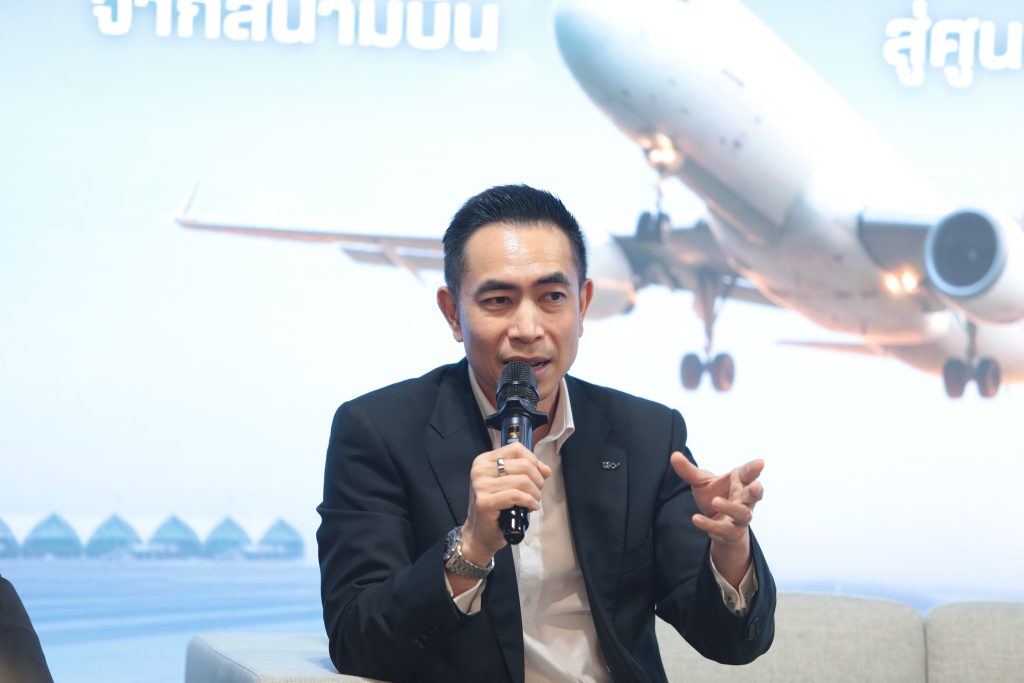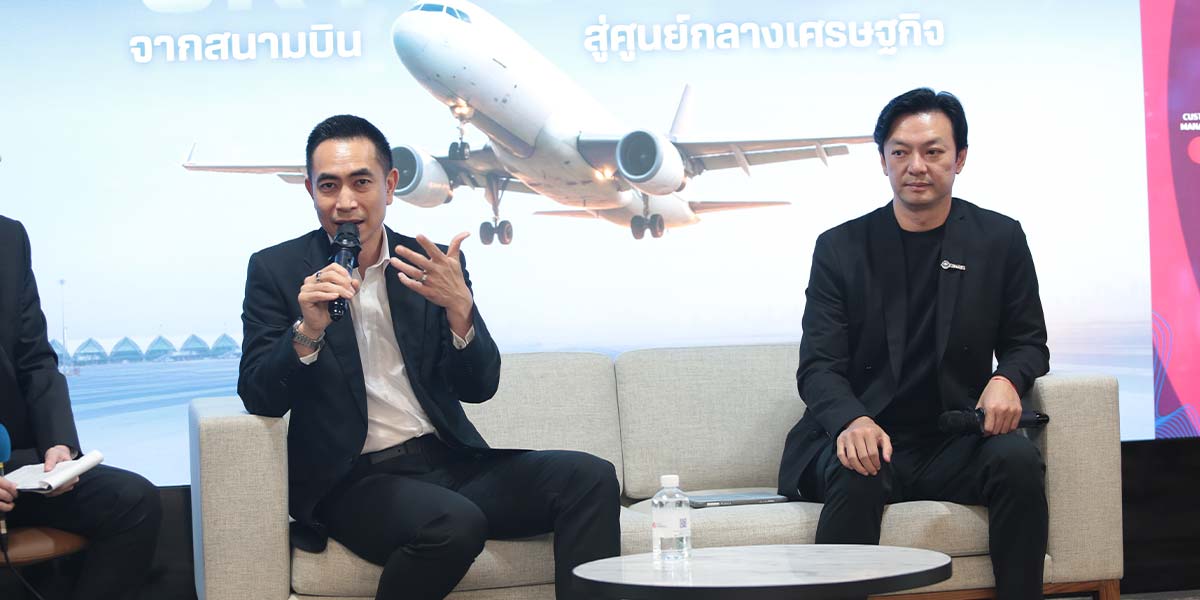At the Skyconomy: Thailand’s Runways to Aviation Hub seminar on October 28, 2025, hosted by Bualuang Securities (BLS) and attended by industry leaders, Mr. Sithidej Mayalarp, CEO of SKY ICT Public Company (SET: SKY), delivered an update. He revealed that SKY is on pace for sustainable growth, which aligns with the government’s push for Thailand to become a regional aviation hub.
As the service provider for 13 airports, the CEO acknowledged the limited impact from the slowdown in tourist arrivals so far this year. He emphasized, however, that the total passenger volume is still increasing, having doubled over the past two years and on track to do so again this year.

Mr. Sithidej stated that the establishment of a new government increases stability and boosts investor confidence, as well as supporting the overall tourism sector. If the government accelerates Thailand’s development as an Aviation Hub, Suvarnabhumi Airport is seen as the most capable of supporting both passenger and cargo growth. The granting of a third cargo concession to AOTGA marks an important milestone to enhance regional competitiveness, positioning Suvarnabhumi Airport as Thailand’s central hub for both passenger and cargo transportation.
Currently, the airport has yet to reach its full potential in passenger and logistics transportation, aiming to move closer to Singapore and Hong Kong as an aviation hub—an industry expected to generate new revenue streams and draw significant foreign capital into Thailand. The government’s role is crucial, such as amending regulations that hamper business competition to allow Thailand to compete internationally.
As the country’s largest airport technology service provider, SKY ICT develops and delivers solutions for 13 nationwide airports, including Airport & Passenger Service systems such as automated check-in, self-service kiosks, passenger screening, and automatic boarding gates. Smart Airport technologies utilize AI, big data, and Biometrics to create rapid, secure, and seamless travel experiences—the company’s Aviation Technology is recognized as a world-class standard.
SKY’s performance is expected to peak in Q4/2025, riding on the recovery in tourism, particularly the return of Chinese visitors during the Golden Week in early October. Thailand is now ranked as a “First Destination” among Chinese outbound travelers. The remainder of this year’s growth will be driven by service and marketing improvements such as expanded flight schedules in the winter season. The increased flights and airlines directly enhance the system, especially in the busy November-December period when tourist numbers surge, as seen during the recent Golden Week in October. With continued positive momentum, Q4/2025 growth is expected to match that of Q4/2024. The new government brings stability, encouraging investment clarity, stimulating private investment, and boosting tourist confidence.
Currently, the company’s backlog stands at approximately THB 23.4 billion, supporting operations for several years, especially with nearly eight years remaining on main concession contracts. SKY plans to continually acquire new project contracts. Over the next four months, the company will be prepared to take on large-scale government and domestic projects. The government’s policies and the accelerated 3.7 trillion baht budget spending will be key drivers, projected to push System Integrator (SI) domestic business growth by 14%. The government’s pivotal role is to promote policies fostering private sector global competitiveness.
Mr. Sithidej referenced research underscoring the aviation industry as one of the five key drivers of Thailand’s growth. The CEO asserted that achieving the status of an aviation hub is possible with continued support from the government and the collaborative efforts of major industry stakeholders. These include SKY Group (with its specialized aviation technology), Thai Airways (the national flag carrier), and Airports of Thailand Pcl. (SET: AOT), which manages the country’s primary airports.
Readiness of Cargo Operation
Mr. Siriwat Tovachirakul, President of AOT Ground Aviation Services Co., Ltd. (AOTGA), stated that after winning the bid as the third ground handler at Suvarnabhumi Airport, the official contract with AOT is expected to be signed by the end of this year or early next year. The process is currently under review by the Attorney General before submission to relevant ministries and Cabinet (Cabinet Meeting) for approval. Services at Suvarnabhumi Airport include ground handling and cargo services, with total investments exceeding THB 3.6 billion. The company is well-prepared in personnel and funding, having applied for bank loans for construction and equipment procurement—currently, only internal procurement processes remain.

“Our new Cargo Terminal is under construction and will be fully equipped with automation systems to elevate and expedite warehouse operations. Facilities must be fully ready if we are to become a true Aviation Hub—everything must reach its fullest potential,” he said.
Projections show that, within five years of commencing services, revenue will reach around THB 1 billion. Initial income may be modest, as it depends on overflow business from the existing two providers: 1) Thai Airways International Public Company Limited, with privileged national carrier status, and 2) Bangkok Flight Services (BFS). The entry of new airlines, combined with AOTGA’s existing presence at Phuket Airport, enables integrated services covering Suvarnabhumi and Phuket airports, offering convenience for international airlines. Investment in brand-new equipment allows for highly efficient service, reducing flight delays—a key concern for airlines. Multi-modal value-added services, such as Line Maintenance and multi-modal transportation linking Suvarnabhumi to Phuket, will also be offered.
This expansion is vital for establishing Thailand as an Aviation Hub and a Transshipment Hub. Thailand’s strategic location and growing market attract major logistics players like DHL, FedEx, UPS, and Chinese firm SF, considering Thailand an ideal hub for Southeast Asia’s 600-700 million population.





